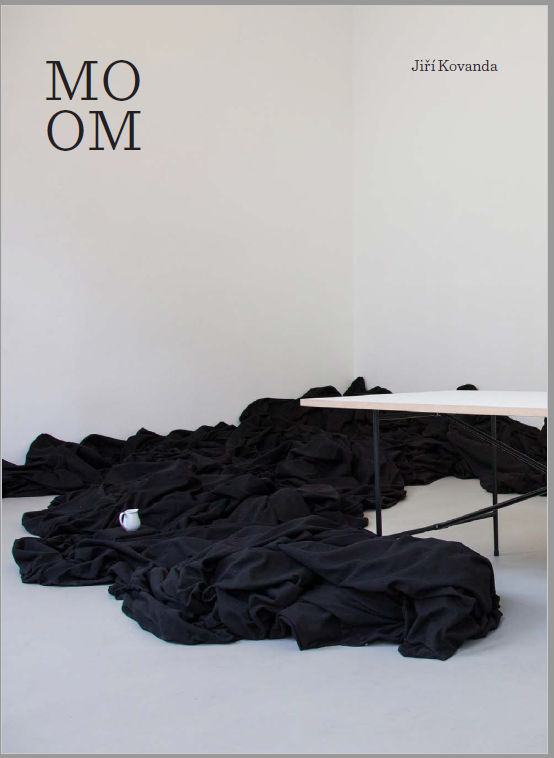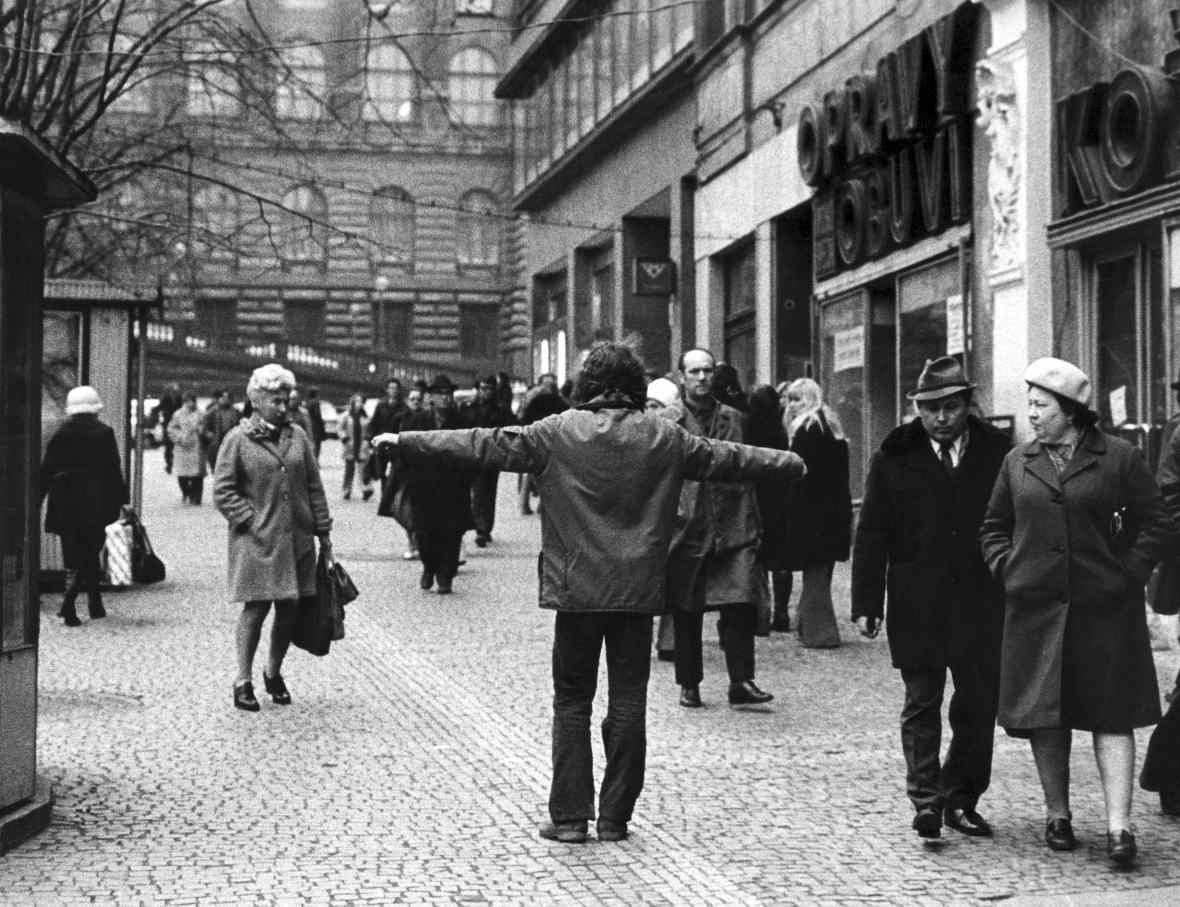Czech Republic, Visual Arts, 2015
Jiří
Kovanda
Prague, mid-1970s. Behind closed doors a group of young artists holds regular evening get-togethers in the basement of the Museum of Decorative Arts, presenting installations and brief actions using only their bodies as material. Karel Miler, curator at the National Gallery, art historian Jiří Sevčik, and Petr Stembera and Jan Mlčoch, who work in the museum’s reserves, make up the nucleus of these gatherings. Youngest of all is Jiří Kovanda: he too puts on actions in the basement, but his seminal, and usually most memorable, works more often take place on the streets of Prague.
The first of them is »Divadlo [theater]« (November 1976), a series of prosaic gestures and movements carried out in a set order, unnoticed, in the street. Other works will follow, more or less visible but just as fleeting: turning around on an escalator and staring into the eyes of the person behind him; bumping into passers-by in the street; standing on Wenceslas square with arms outstretched; and getting a group of friends together and then running off and losing them. Often the typed description that forms the documentation, along with a photo, tails off into an ellipsis — Kovanda’s way of suspending the meaning of his actions, but also of signaling them as narrative triggers. This distinguishes his descriptions from mere factual reports, and opens up a more poetic, somewhat romantic dimension; solitude and incommunicability are its basic principles, together with the constantly thwarted urge to make contact. These performances, Kovanda says, are »as if someone was saying yes and no at the same time.« One example is »Attempted Acquaintances«, in which he gets his friends to watch his unsuccessful efforts to meet a girl in the street. The situation is not without its funny side, but there is also an element of mortification, as in numerous other actions exposing him, even if only briefly, to public embarrassment. More recent performances dating from the 2000s continue to make play with this self-exhibition: »Kissing Through Glass«, in which he invites passers-by to kiss him on the mouth through a window, and pure and clear, which has him sneaking candy into exhibition visitors’ pockets and bags. These actions systematically have to do with dissolving the boundaries between private and public space: a kind of unobtrusive intrusion which, with an acute sense of proportion, mingles distance and proximity with the inherent eroticism of these »acquaintances«.
The Kovanda oeuvre — this also applies to his installations and sculptures — always works »with«, and never »against« the situation. The range of forms he organizes, using materials found and transformed but never actually worked on, invariably embodies the same ethos: an economy of means and time which never foregrounds the slightest virtuosity and ultimately obscures the figure of the artist in favor of a simple, modest, obvious gesture, addressing the individual’s inner motivations with a singular universality.
Text: Francois Piron
Translation: John Tittensor
Camera/editing: Uli Aumüller, Sebastian Rausch
Past
-

MOOM
Jiří Kovanda2022, Book

The publication brings together images from Jiří Kovanda‘s exhibitions and events in Berlin from 2015-2016, excerpts from an artist talk with Noemi Smolik held during the exhibition MOOM at the daadgalerie on Zimmerstrasse; an essay by Jörg Heiser on Kovanda’s artistic practice; and a text by Bettina Klein giving insight into Kovanda’s activities in Berlin with a special focus on the materiality of his works.
Jiří Kovanda (Czech Republic) was a DAAD Artists-in-Berlin fellow in 2015.Publisher: Berliner Künstlerprogramm des DAAD / Silvia Fehrmann
Editors: Bettina Klein and Jiří Kovanda
Authors: Jörg Heiser, Bettina Klein and Noemi Smolik
Translations: Johana Gallup, Erik Smith
Transcription artist talk: Johana Gallup
Design: Andreas Koch
Printing: Gallery Print, Berlin
© 2022 Berliner Künstlerprogramm des DAAD, artist, and authors
ISBN 978-3-956793-41-7
Printed in GermanyPre-order: bkp.berlin@daad.de



